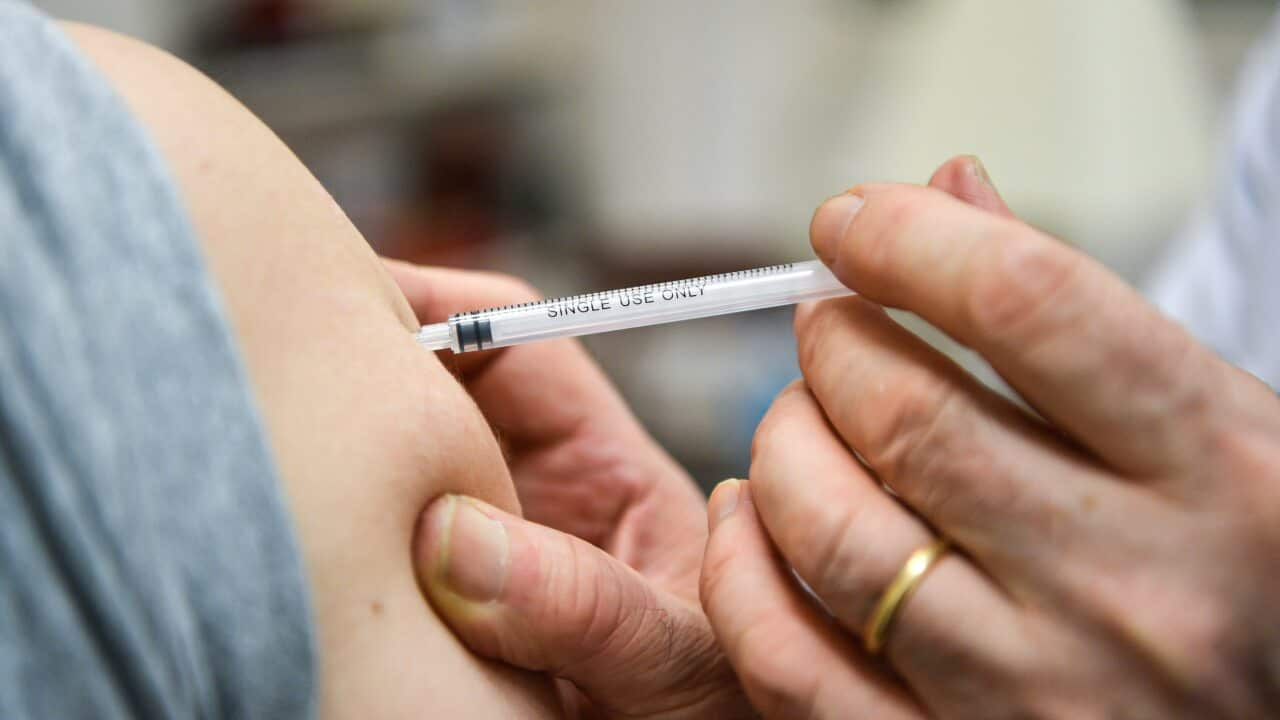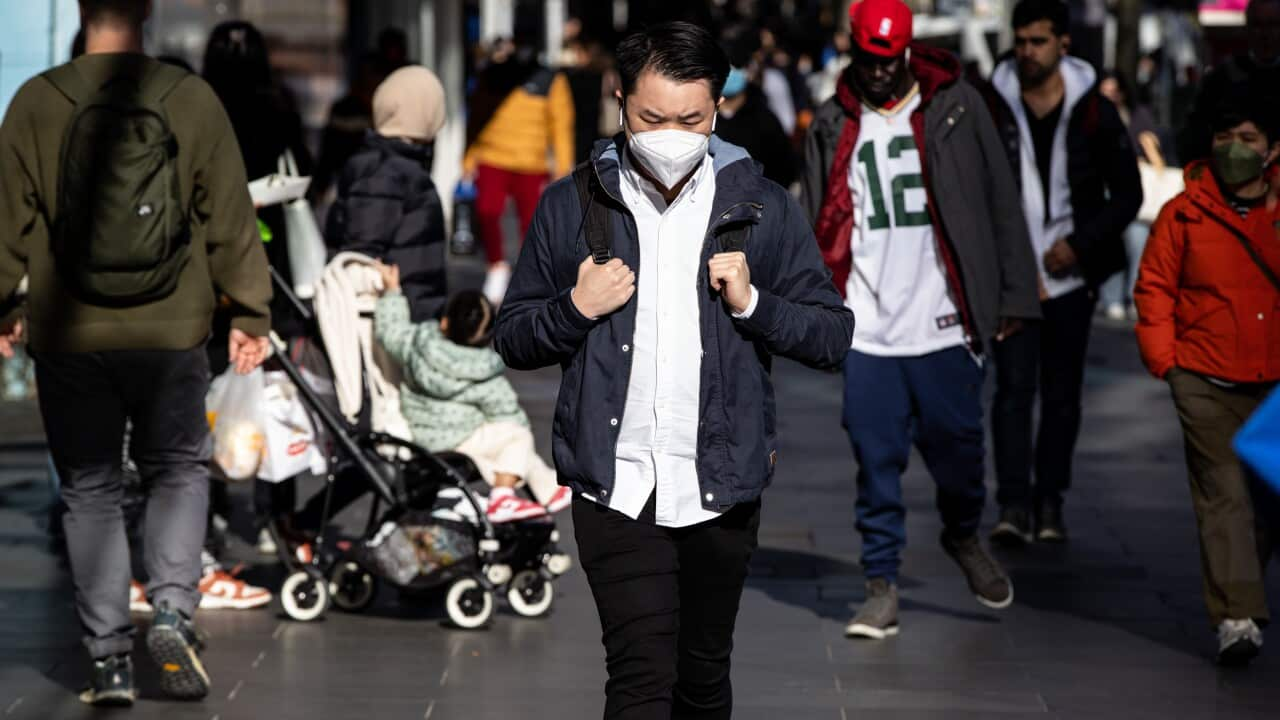Using the same arm for a booster vaccine as for a first dose may help the immune system respond effectively to a disease outbreak, according to new Australian research.
The study, published in the journal Cell on Tuesday, detailed a clinical trial in which most volunteers received two vaccination jabs in one arm, while the rest switched arms between shots.
Those who received their booster dose in the same arm as their first had produced neutralising antibodies significantly faster than those who had their second shot in the opposite arm, the researchers found.
The trial involved 30 volunteers who were injected with the Pfizer-BioNTech mRNA vaccine for COVID-19.
Immune cells in the lymph node near the injection site activated after the initial shot, according to the study led by the Garvan Institute of Medical Research and the Kirby Institute at the University of NSW.
These became primed to boost the immune response after the second shot was administered in the same arm.
'Fundamental discovery'
The study's co-senior author, Professor Tri Phan, director of Garvan's precision immunology program, hoped the evidence would refine vaccination approaches.
"This is a fundamental discovery in how the immune system organises itself to respond better to external threats — nature has come up with this brilliant system and we're just now beginning to understand it," Phan said.
Breaking down the complex study, Phan said vaccines stimulate the development of immune cells that make antibodies, along with immune cells that become primed to help them.
The primed cells that remember the vaccine help to make a faster response the second time around by helping memory B cells change the antibodies they make to adapt to changes in the virus.
Viruses can mutate, but so can memory B cells.
"What's exciting about the research is that we showed that these other cells, called macrophages, interact with these memory B cells," Phan said.
"By talking to the memory B cells, they can help direct them to mutate the receptor and make better antibodies."
While there are no official guidelines on whether you should receive your vaccine in the same arm, Phan said the findings show there is a "benefit" and offer a promising avenue for enhancing the effectiveness of vaccines.


